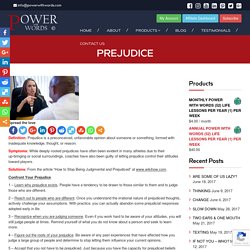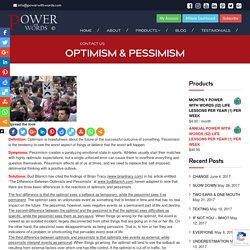

Effective communication techniques are so important. Citing some of the foremost experts in the world
POWER with WORDS : POWER with WORDS. There are many angles to look at this dilemma, but let’s focus on two; 1.

Want, 2. Need. Want Based on piles of evidence, if we want something we tend to put more effort into getting it than if we need something. We examine much more possibilities of acquiring whatever it is we want and less time allowing our insecurities or emotions to stop us. Need Needing something, however, seems to have less urgency than wanting in most situations.
So why do we find ourselves at times, acting lazy? Laura D. “Laziness” is an overused criticism—a character judgment, that does nothing to help us understand why someone doesn’t exert the effort to do what they want or are expected to do. Myth The fear of failure: Many people get in their own way by postponing the pursuit of goals, because their estimation of themselves may be low. The Real Symptom If you think of yourself as “lazy,” consider your behavior as the symptom of a problem, rather than the problem itself. POWER with WORDS : POWER with WORDS. Is texting effective communication techniques?

Wow, the spectrum goes both ways. Therefore, I will give you my two-cents. I am 61 years young and use texting every day. However, I created a communication protocol that I have trained certain clients to text me if they are planning to attend a weekly clinic I provide. It works great; it’s fast simple and keeps the truth. Texting, like anything, has it a purpose. POWER with WORDS : POWER with WORDS. Definition: Prejudice is a preconceived, unfavorable opinion about someone or something, formed with inadequate knowledge, thought, or reason.

Symptoms: While deeply-rooted prejudices have often been evident in many athletes due to their up-bringing or social surroundings, coaches have also been guilty of letting prejudice control their attitudes toward players. Solutions: From the article “How to Stop Being Judgmental and Prejudiced” at www.wikihow.com. Confront Your Prejudice 1 – Learn why prejudice exists.
POWER with WORDS : POWER with WORDS. No one has perfect interpersonal communication skills; it is art, psychology, and skill combined.

Understanding all of the possibilities, the issues caused by the inflection of the words we speak, how we perceive various words and individual prejudice are a just a few of the things to consider. Experts Experts in their field of study have been trying to help us for centuries. But, why has this been a problem for so long? POWER with WORDS : POWER with WORDS. POWER with WORDS : POWER with WORDS. Why do so many people speak in a hurry, interrupt, and answer before a person has finished speaking?

Is it a personality thing, or a protection mechanism? The greatest power you can have over someone is knowing more about them than they know about you. So, what is it about interpersonal communication? Why is communicating effectively so difficult? POWER with WORDS : POWER with WORDS. Definition: Optimism is hopefulness about the future or the successful outcome of something.

Pessimism is the tendency to see the worst aspect of things or believe that the worst will happen. Symptoms: Pessimism creates a paralyzing emotional state in sports. Athletes usually start their matches with highly optimistic expectations, but a single unforced error can cause them to overthink everything and question themselves. Pessimism affects all of us at times, and we need to replace this self-imposed, detrimental thinking with a positive outlook.
Solutions: Bud Bilanich has cited the findings of Brian Tracy (www.briantracy.com) in his article entitled, “The Difference Between Optimists and Pessimists” at www.budbilanich.com, herein adapted to note that there are three basic differences in the reactions of optimists and pessimists. POWER with WORDS : POWER with WORDS. Definition: Self-justification is the explaining of one’s actions, beliefs, attitudes, or feelings to another.

Symptoms: In sports, self-justification means doing something poorly and then defending the action. With a myriad of thoughts constantly barraging the mind of an athlete, the key is to learn how to control those thoughts in order to keep emotions in check and make appropriate decisions. Whenever an athlete condones a personally inappropriate attitude or action, he or she is resorting to a poor decision in order to win. POWER with WORDS : POWER with WORDS. Definition: Closed-mindedness is the state of being unwilling to consider other ideas or opinions.

Symptoms: In sports, the nonprofessional athlete who begins to enjoy some measure of success may begin to think, “My way is the right way.” When such closed-mindedness settles in, he or she needs to be reminded that change will always be necessary and that open-mindedness is the desirable attribute. POWER with WORDS : POWER with WORDS. Definition: Optimism is hopefulness about the future or the successful outcome of something.

Pessimism is the tendency to see the worst aspect of things or believe that the worst will happen. Symptoms: Pessimism creates a paralyzing emotional state in sports. Athletes usually start their matches with highly optimistic expectations, but a single unforced error can cause them to overthink everything and question themselves. Pessimism affects all of us at times, and we need to replace this self-imposed, detrimental thinking with a positive outlook.
Solutions: Bud Bilanich has cited the findings of Brian Tracy (www.briantracy.com) in his article entitled, “The Difference Between Optimists and Pessimists” at www.budbilanich.com, herein adapted to note that there are three basic differences in the reactions of optimists and pessimists. The first difference is that the optimist sees a setback as temporary, while the pessimist sees it as permanent. POWER with WORDS : POWER with WORDS. Definition: Composure is the state of being calm and in control of oneself.

Symptoms: In sports, an athlete with very high-performance expectations is likely to become easily frustrated and lose control emotionally when he or she believes that those expectations are not being met. Identifying the mental breakdowns that cause such a loss of composure is essential. Solutions: In his article, “The Key to Composure in Sports” at www.sportpsychologytoday.com, Mike Edger identifies the top five mental errors that can affect composure. Perfectionism – Expecting to perform perfectly causes a loss of composure because you become frustrated and then focus too much on your errors instead of on the tasks needed to perform well.Social approval – Worrying too much about how you think others may judge you distracts from your performance.
To Read or Listen to the Rest of This Life Lesson. POWER with WORDS : POWER with WORDS. Definition: Passive-aggressiveness is the indirect expression of hostility. Symptoms: Passive aggression happens more often than one might think in sports, especially in team sports. When an athlete is sidelined by the coach, his or her personal feelings toward the player who took the athlete’s place can easily portray passive-aggressiveness.
The aggressor may ignore the player instead of showing support. Menacing looks may be directed toward the athlete without saying a word, knowing that the coach would not approve. Passive aggression primarily works against the aggressor and can be exhibited beyond sports as a generalized negative response pattern. Solutions: Signe Whitson, L.S.W., in her article “10 Things Passive-Aggressive People Say” at www.psychologytoday.com, says that there is a range of behaviors designed to get back at another person without him or her recognizing the underlying anger. 1 – I’m not mad. – Denying feelings of anger is classic passive-aggressive behavior.
POWER with WORDS : POWER with WORDS. Definition: Feelings of doubt about your own worth and abilities. Symptoms: Self-Doubt raises its ugly head many times during sports activities. It is very common and can last until we complete an activity the way we want. POWER with WORDS : POWER with WORDS. POWER with WORDS : POWER with WORDS. POWER with WORDS : POWER with WORDS.
POWER with WORDS : POWER with WORDS. POWER with WORDS : POWER with WORDS. DEFINITION: An underestimation is a judgment about someone or something that is too low. SYMPTOMS: Retired basketball player and coach Rudy Tomjanovich, Jr. once said, “Never underestimate the heart of a champion.” In sports, there is no doubt that underestimating one’s opponent can produce a devastating result, but knowing that your own performance ability has been devalued can also have an adverse effect. SOLUTIONS: Do you know how to react when someone underestimates you? Does it make you feel under-appreciated or inferior? “How to Deal With People Who Underestimate You” is an article from www.wikihow.com that lends practical help. Talking to People Who Underestimate You. POWER with WORDS : POWER with WORDS. Effective communication techniques seem to be the last global problem we want to face. Certainly, there are other problems that need immediate attention, but there never seems to be any concerted effort to address this worsening problem.
It can also be argued that many of the current problems we are facing are in part due to lack of communication and listening skills. Politicians are in such a hurry to act on various issues that it appears their focus is personal and with that mindset, the listening to understand goes away. POWER with WORDS is an extremely simple, weekly, one-page training tool to help children and adults learn the best words to communicate better. Words are far more complicated when trying to understand the universal truths of effective communication.
Technology transfixes children in the United States, and they communicate less than ever before. POWER with WORDS : POWER with WORDS. Definition: Toxic behaviors are personal actions that are detrimental to the individual and to others. Symptoms: Athletes have their share of individuals who exhibit very poor behavior. The drive to win becomes everything and athletes will cheat, lie, swear, fight, and say inappropriate things to their opponent. This behavior usually starts at a young age, and unless the parents intervene with authority, the athlete becomes his or her worst enemy. As they grow older their outlook on life is tainted and many show signs of depression, anxiety and isolation. Solutions: At www.marcandangel.com, Marc and Angel Chernoff have joined with Kathy Caprino to identify a dozen of the most common negative behaviors that affect one’s well-being, relationships, and personal and professional growth in their article, “12 Toxic Behaviors That Push People Away From You.”
POWER with WORDS Communications Life Lessons Customers Testimonials : POWER with WORDS. Joseph Cuenco - Executive and Consultant I found the article on “Awareness” so profound that I have a printed copy hanging on my office wall. POWER with WORDS : POWER with WORDS. POWER with WORDS : POWER with WORDS. Our brains are made to think, and it is natural. We think about all kinds of things, and some of the thoughts have emotions attached to them. This is where we can find ourselves fighting our thoughts instead of acknowledging them and let the thoughts pass. We tend to dwell on negative issues, even though we have complete control to let them pass and focus on constructive ways to fix negative issues. In so many cases, we become so accustomed to focusing on negative thoughts that we find ourselves in an extended battle of negative thinking. POWER with WORDS : POWER with WORDS. POWER with WORDS : POWER with WORDS.
Anger – Part 3 Definition: Anger is a strong feeling of annoyance, displeasure, or hostility that has the potential of becoming addictive.. Symptoms: Sports engagement often promotes anger, and while some athletes learn to identify and deal with emotional triggers, many others do not. The danger lies in anger becoming an addiction. Solutions: An article on www.psychcentral.com by Edie Weinstein, MSW, LSW addresses the question, “Is Anger an Addiction?”
The American Society of Addiction Medicine defines an addiction as “a primary, chronic disease of brain reward, motivation, memory, and related circuitry.” POWER with WORDS : POWER with WORDS. POWER with WORDS : POWER with WORDS. What is it about change that becomes very difficult for people to accept? What do they say, “The three things that you can always count on is; taxes, death, and change.” And we hate them all! But, why change? Is it because we become used to our current situation that any change is unsettling due to the unknown of nature of it? Or do we associate change with something potentially bad because of the unknown factor? Vanity. POWER with WORDS : POWER with WORDS. POWER with WORDS : POWER with WORDS. POWER with WORDS : POWER with WORDS. POWER with WORDS : POWER with WORDS. You learned how to speak your language before you can remember.
You made it through school and may have opened your own business or worked for someone. You may have gotten married and had children. So why should you consider learning effective communication strategies, especially since you already know how to communicate? The above observation is typical, and the question asked is classic. So, why should anyone consider learning better communication techniques, if they already know the language? Effective communication is a learned activity after you have learned the language and not something you learn as you are growing up. POWER with WORDS : POWER with WORDS. POWER with WORDS : POWER with WORDS. Definition: Denial is the refusal to accept the truth or reality regarding someone or something.
Symptoms: By its very nature, participation in sports invites denial. Players quickly engage in it when they don’t do something perfectly or at least correctly. “I can’t believe I hit that shot” is a very typical response. Whether the denial is mental or verbal, it indicates that the athlete needs to accept the reality of shortcomings and then focus on the next right move in order to recover faster and play better.
POWER with WORDS : POWER with WORDS. Definition: Emotions are strong feelings deriving from one’s circumstances, mood, or relationships. POWER with WORDS : POWER with WORDS. Definition: Mental strength is a measure of individual resilience and confidence that may predict success in sports, education, and the workplace. Symptoms: All athletes must draw on their mental strength to play at their peak performance. Getting into the “Zone,” at will, requires an understanding of what constitutes intense mental focus. This mental capacity is vital in today’s competitive environment, both on and off the court or field.
Solutions: Mental toughness is characterized by the ability to push through difficult (and even painful) situations while maintaining peak performance. POWER with WORDS : POWER with WORDS. POWER with WORDS : POWER with WORDS. Definition: Perfectionism is the disposition to regard anything that falls short of being flawless as unacceptable. Symptoms: In sports, as in any other arena in life, meaningful goals provide the incentive to think and act productively. Perfectionism, however, distorts reality and is self-defeating. POWER with WORDS : POWER with WORDS. Definition: Predictability is the attribute of a state of mind, pattern of behavior, or course of action that makes it possible to know in advance what to expect.
Symptoms: In sports, being able to predict an opponent’s moves comes with lots of keen observation. Professional teams review film after film of their opponents to take note of how they have reacted under various circumstances in the past. Understanding the mindset of an opponent is not an exacting science but is rather the art of predicting that which seems most probable. POWER with WORDS : POWER with WORDS. POWER with WORDS : POWER with WORDS. POWER with WORDS : POWER with WORDS. POWER with WORDS : POWER with WORDS. POWER with WORDS : POWER with WORDS.